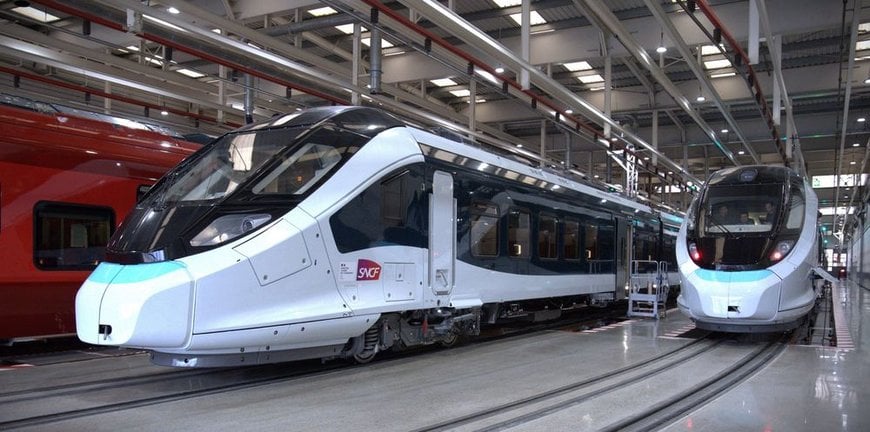railway-international.com
23
'24
Written on Modified on
CAF to supply 22 Intercités Oxygène trains to SNCK voyageurs for the Bordeaux-Marseille line
The Trains d'Équilibre du Territoire network comprises medium- and long-distance trains serving major French cities that are not connected by high-speed rail.
www.caf.net

The French operator SNCF Voyageurs has once again entrusted CAF with the supply of 22 Intercités trains, branded as Oxygène, which will serve the Bordeaux-Marseille line.
These join the 28 trains previously contracted in 2019 for the Paris-Limoges-Toulouse and Paris- Clermont-Ferrand lines. The initial contract for Oxygène trains included an option to extend the supply by up to 75 additional trains. This new agreement for a further 22 trains amounts to a total value of more than 400 million euros. The purchase of new rolling stock by Intercités is financed by the State, which oversees the TET network (Trains d'Équilibre du Territoire). This network comprises medium- and long-distance trains serving major French cities that are not connected by high-speed rail.
A new passenger experience for medium and long distance journeys
The Intercités Oxygène trains have a total capacity of 420 seats, comprising 317 in second class and 103 in first class. The vehicles offer a high level of comfort. The seats are both comfortable and ergonomic, featuring integrated backrests. They have been designed specifically for this train with an aesthetic that celebrates the design of the original Corail train seats, which were first implemented 50 years ago. Additionally, the vehicles will be equipped with LED reading lights, power sockets, USB ports, and high-speed WiFi.
The train's accessibility and ease of movement are further enhanced by a wide corridor, which provides dedicated space for bicycles as well as ample luggage space. In addition, the Intercités Oxygène train features a dedicated catering area.
The new order consolidates the workload for the CAF plant in Reichshoffen
The 22 new trains will be manufactured entirely at CAF's facilities in Alsace, where the majority of the 28 trains comprising the initial order are already under production. This agreement for additional trains represents a significant increase in the workload of the Reichshoffen plant through to 2029.
With a history spanning 250 years of industrial and railway operations, the Reichshoffen plant, comprising a workforce of 740 individuals, represents a prominent plant in the CAF group. This is attributable to the engineering and design department, comprising over 130 engineers and technicians, which is capable of designing entire trains, in addition to the plant's flexible industrial capacity and vehicle testing facilities.
Validation and compliance testing underway
CAF is currently conducting a series of tests at the Velim test track in the Czech Republic. These tests are intended to validate the design and performance of the Oxygène train, with evidence of the proper operation of the rolling stock being gathered and recorded to verify compliance with the relevant national and European railway requirements. Concurrently, the Beasain and Reichshoffen plants continue manufacturing the trains in the series.
The French rail network is set to undergo a series of approval tests starting in the autumn of 2025 which are scheduled to last various months. Finally, from 2026 onward, Oxygène trains will undergo testing in real-world conditions on their designated lines Paris-Clermont-Ferrand and Paris-Limoges-Toulouse. Once the planned stages are successfully completed, the rail safety authorities will issue the relevant Authorisation, which is indispensable for the commencement of commercial service.
www.cafmobility.com

